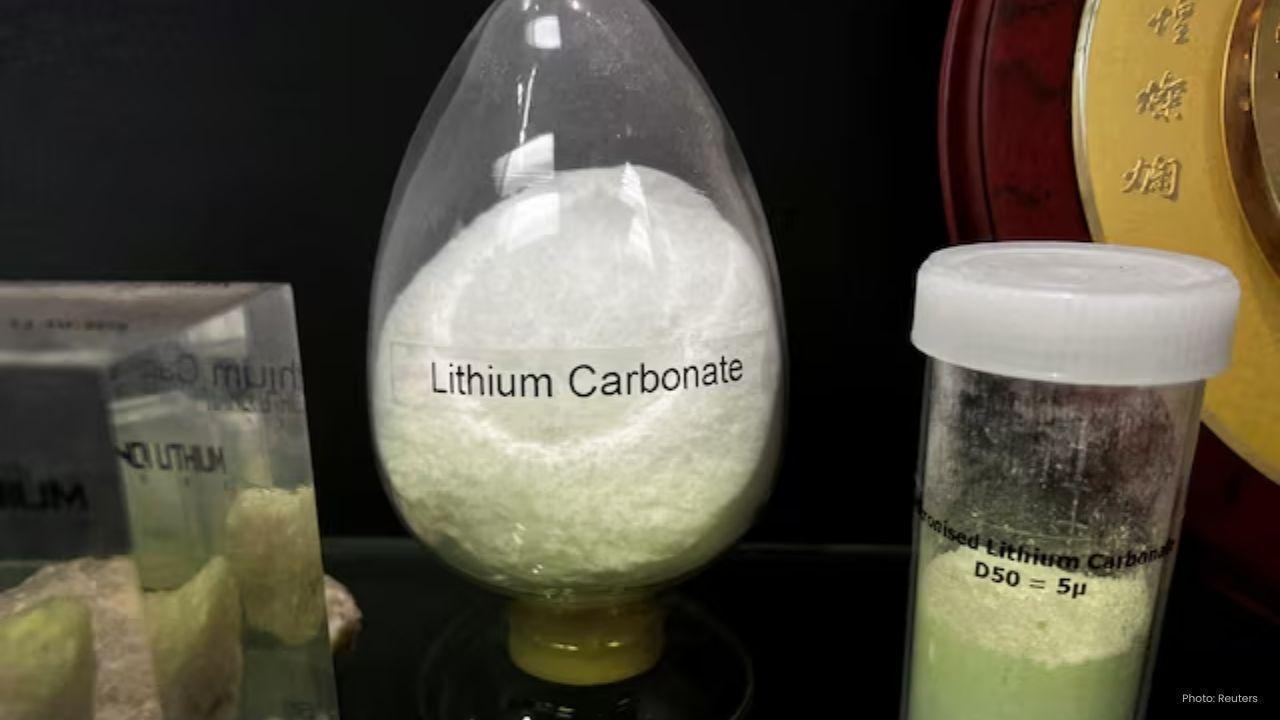
Post by : Vansh
In today’s fast-paced world, the boundary between science fiction and reality is disappearing. From artificial intelligence and quantum computing to biotechnology and space exploration, innovation is rewriting the rules of what is possible. We are truly living in an age of transformation, where science and technology collide to shape the future of our lives, societies, and the planet.
This collision isn’t accidental—it’s deliberate, driven by global challenges, human curiosity, and the need to build smarter, safer, and more sustainable systems. The collaboration between scientists, engineers, and tech pioneers is giving birth to new industries, solving old problems, and creating opportunities that once seemed unimaginable.
Let’s explore how inventing the future is no longer just a concept, but a daily reality powered by scientific insight and technological genius.
Among the most groundbreaking areas of progress is artificial intelligence (AI)—a field that aims to make machines think, learn, and make decisions like humans. From virtual assistants in smartphones to AI doctors diagnosing illnesses, artificial intelligence is already transforming industries.
In the coming years, AI will become even more powerful. It will automate more jobs, improve transportation through self-driving cars, and even help governments predict and manage pandemics. In classrooms, AI tutors are personalizing learning, adapting content to suit each student's pace and style. For businesses, AI is streamlining operations, analyzing vast amounts of data, and predicting market behavior with impressive accuracy.
AI represents the future of intelligent systems, where decisions are no longer solely made by humans but co-created with smart technologies. While it brings massive benefits, it also calls for responsible innovation, data ethics, and human oversight to ensure fairness, safety, and transparency.
When it comes to health and medicine, biotechnology is the science changing everything. By merging biology with technological innovation, scientists are creating ways to treat diseases more accurately, improve food security, and even extend human lifespan.
The most notable example is CRISPR, a gene-editing tool that allows scientists to "cut and paste" DNA with precision. This innovation can potentially cure genetic disorders, develop climate-resistant crops, and prevent viruses from spreading. In the post-COVID world, biotech played a vital role in producing vaccines at record speed.
Another rapidly growing field is regenerative medicine—where damaged tissues or organs are repaired or replaced using stem cells and bioengineered materials. Imagine a future where organ transplant waiting lists are obsolete because your own cells can grow a new heart or liver.
Biotechnology, when guided by ethical research and inclusive access, is opening doors to healthier and more resilient futures for humanity.
Traditional computers have taken us far, but now, scientists are building machines that can do what seemed impossible before. Quantum computing is a new frontier that uses the principles of quantum physics to process information at lightning speed.
Unlike classical computers that use bits (0s and 1s), quantum computers use qubits, which can exist in multiple states at once. This means they can solve incredibly complex problems in seconds—problems that would take traditional computers years to process.
Quantum computing holds potential for revolutionizing drug discovery, optimizing financial systems, decoding DNA faster, and strengthening cybersecurity. Governments and tech giants like Google, IBM, and Microsoft are investing heavily in this race to quantum supremacy.
Though still in its early stages, quantum computing is a powerful example of how science and technology collide to open new dimensions of innovation.
As the world faces climate change, pollution, and resource shortages, green innovation is becoming a vital part of technological advancement. Scientists and engineers are developing sustainable solutions to protect the planet while maintaining economic growth.
Solar panels, wind turbines, and electric vehicles are just the beginning. New technologies now include carbon capture systems, biodegradable materials, water purification nanotech, and AI-driven climate modeling.
Smart agriculture is another area where sustainability and science meet. With the help of drones, sensors, and data analytics, farmers can monitor crop health, reduce waste, and increase yield using fewer resources.
Green tech is not just about survival—it’s about inventing the future we want to live in. It blends scientific research with practical tools that help us live in harmony with the Earth.
The dream of space travel is no longer limited to astronauts and scientists. Commercial companies like SpaceX, Blue Origin, and NASA collaborations are making space accessible and meaningful for broader humanity.
Moon missions, Mars colonization plans, and satellite mega-constellations for global internet are now on the table. Moreover, space-based technologies like GPS, weather forecasting, and Earth observation continue to serve life on Earth.
Exploring space challenges us to innovate in materials, energy, communication, and human survival. It also pushes young minds to pursue careers in STEM, fueling the next wave of discovery.
In this age of space exploration, we’re witnessing how far human ambition and science can go when guided by purpose and creativity.
Perhaps the most exciting part of this journey is how today’s youth are not just the beneficiaries of innovation—they are the creators. From student inventors designing clean water systems to teenage coders building life-saving apps, the next generation is fully engaged in solving real-world problems.
Access to online learning, open-source platforms, and global competitions has empowered young minds to experiment, fail, and succeed—all from their homes or classrooms. STEM education is no longer a niche but a global priority.
This proves that inventing the future isn’t about waiting for change—it’s about taking charge of it.
This article is published by MiddleEastBulletin for informational purposes only. The views and insights shared are based on current scientific and technological developments and are not intended as expert advice. Readers are encouraged to conduct further research or consult professionals for detailed guidance.










Pageau's Overtime Goal Propels Islanders to 4-3 Victory Over Golden Knights
In a thrilling overtime finish, Jean-Gabriel Pageau leads the Islanders past the Golden Knights 4-3,

MLB Awards: deGrom and Acuna Jr. Shine as Comeback Players
Jacob deGrom and Ronald Acuna Jr. celebrated MLB Comeback Player Awards, alongside Ohtani and Judge

Portugal Confronts Ireland in Pivotal World Cup Qualifier
Portugal, led by Cristiano Ronaldo, faces Ireland in a vital Group F World Cup qualifier that could

Haaland's Brilliance Leads Norway to 4-1 Victory Against Estonia
Erling Haaland showcases leadership as Norway crushes Estonia 4-1, boosting their World Cup ambition

Hawks Triumph Over Jazz; Suns and Raptors Secure Victories
Hawks' Onyeka Okongwu and Jalen Johnson lead in a thrilling win against Jazz; Suns and Raptors also

Indian Men's Recurve Team Clinches First Asian Gold in Nearly Two Decades
The Indian men's recurve team triumphed over South Korea, securing their first Asian gold in 18 year